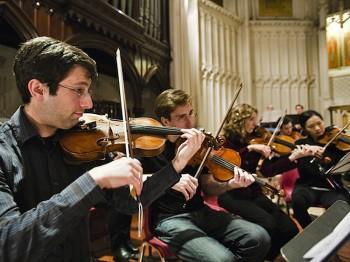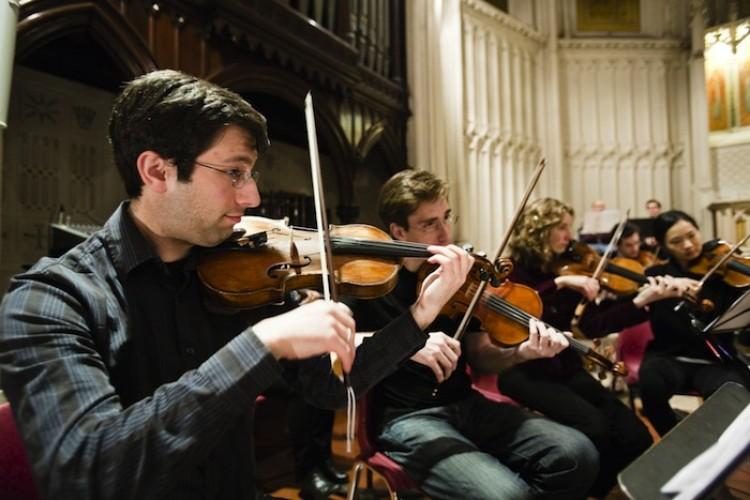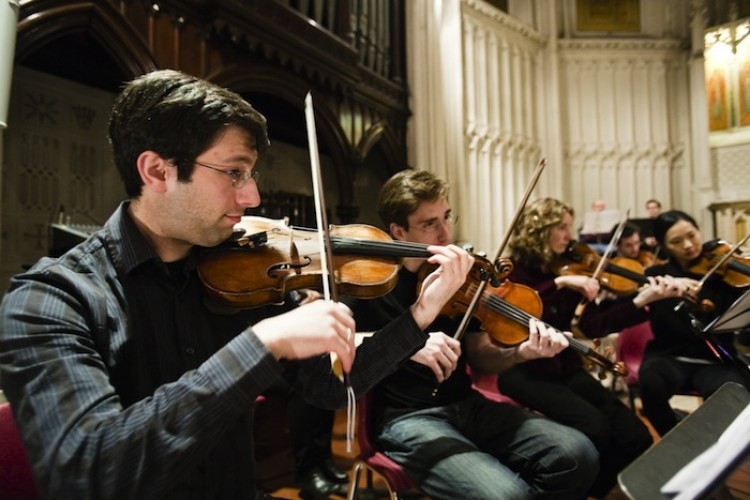Big Apple Baroque Presents Groundbreaking Version of ‘Fairy Queen’
Big Apple Baroque is a group that brings independent classical musicians together with talented early Classical specialists. Started in 2002, it was founded by harpsichordist and former historian Alan Fellows, who is also the director and conductor of the group.

BAROQUE MUSIC: The string section of Big Apple Baroque is seen performing on Tuesday. Courtesy of Big Apple Baroque

Zachary Stieber
Senior Reporter
|Updated:
Zachary Stieber is a senior reporter for The Epoch Times based in Maryland. He covers U.S. and world news. Contact Zachary at [email protected]
Author’s Selected Articles






